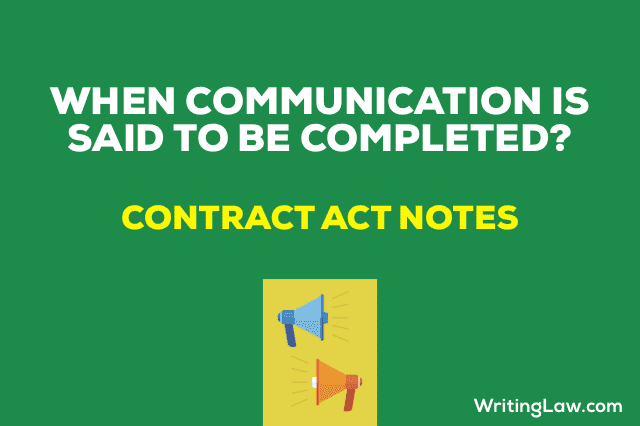
When is Communication of Acceptance Complete
Section 4 of the Indian Contract Act talks about ‘Communication When Complete’
A. The communication of acceptance is complete as against the proposer when it is put in the course of transmission to him so at to be out of the power of the acceptor.
B. Against the acceptor – When it comes to the knowledge of the proposer.
For example: ‘A’ proposes by letter, to sell a house to ‘B’ at a certain price. B accepts A’s proposal by a letter sent by post. The communication of acceptance is complete as against ‘A’ when the letter is posted, and as against ‘B’ when the letter is received by ‘A.’
Thus when a letter of acceptance is posted, the proposer becomes bound, but the acceptor will be bound only when the letter is received by the proposer.
A complete contract arises on the date when the letter of acceptance is posted, and the contract is deemed to have been made at the place where the letter of acceptance is posted.
Bhagwandas Goverdhandas Kedia vs Girdharilal Parshottamdas, 1966
In this case, the Hon’ble Supreme Court made clear the confusion about the completion of the contract by telephone or telex. The majority of judges held that the communication on telephone or telex is like an exception of section 4 and held where a contract is made by telephone, the contract is complete only when acceptance is received by the proposer. The contract is made at a place where acceptance is received, it means at the place of the proposer.
Related Law Notes:
1. Essential Elements of a Valid Contract.
2. What is Free Consent in Contract.
- Article 334A of the Constitution of India - 14th April 2024
- Article 332A of the Constitution of India - 14th April 2024
- Article 330A of the Constitution of India - 14th April 2024







